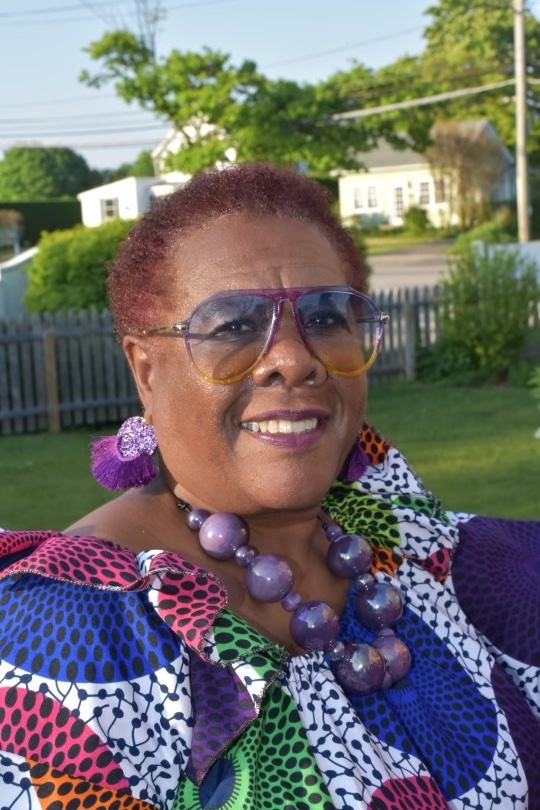
On June 19, 1865, federal troops arrived in Galveston, Texas, to enforce the Emancipation Proclamation, ensuring that all enslaved people be freed.
This day came a full two and a half years after the agreement was signed, and it wasn’t until last June that the day of the official end of slavery in the United States — known as Juneteenth — was recognized as a federal holiday.
“Someone said to me — this is a white person — said to me, ‘I was in school and I never was taught Juneteenth.’ And I said to him, ‘Neither was I,’” recalled Brenda Simmons, founder and executive director of the Southampton African American Museum. “I think so much wants to be erased, but I think so much needs to be taught to help us heal.”
On Sunday, Black Women in Media will honor Simmons alongside Southampton Village Trustee Robin Brown and Dr. Georgette Grier-Key, executive director and chief curator of the Eastville Community Historical Society, who have all “contributed greatly to the Black community, as well as preserving its rich history,” according to the organization’s website.
The festivities will include a tour of the Southampton African American Museum, located at 245 North Sea Road, which was a gathering place for local African Americans dating back to the 1940s. Affectionately called “The Barbershop,” it was designated the first African American historic landmark in Southampton Village in 2010, and opened as a museum under Simmons’s leadership last year.
Ahead of the commemoration, the executive director discussed the importance of Juneteenth and the museum’s upcoming celebration this weekend, which will feature musical performances, a keynote talk by award-winning author A’Lelia Bundles, who is the great-great-granddaughter of entrepreneur Madam C.J. Walker, and more.
How are you feeling about the recognition from Black Women in Media?
It’s an honor. It really, really, absolutely, is an honor, and it has given me confirmation that it was all worthwhile. Being recognized from Black Women in Media is, actually, extra special, to be honest. I think it’s important for us to recognize and empower each other as Black people.
Why have you dedicated this chapter of your life to the museum and shining a light on Black history on the East End?
First and foremost, I think it’s extremely important to leave a legacy for our community that, just about, has vanished. It’s important that people know, the world knows, that there were a lot of African American, Black people in Southampton that helped prosper Southampton — and helped make Southampton what it is.
Because I’m an advocate, as well — that’s part of my degree, advocacy — I think that has been another drive for me because there’s so much controversy with people of color. And plus, more than anything, too, a lot of this information is not taught in school, and that’s probably another basis of why I’ve pursued this for so long.
And, also, as you know, with the CRT that’s being promoted — I call it “the cover up reality tactic” — that’s important to me and I have purposely reached out to the school and made sure that we have collaboration. That has been going on, off and on, for 11 or 12 years.
How did you approach the Juneteenth programming for the museum?
All of that combination has to do with the history of the barbershop and the beauty parlor, also the combination of the empowerment of Black women, the empowerment of education. Madam C.J. Walker was an extreme philanthropist. She empowered a lot of women back in those days, who would have probably been wash women and people working in the fields, but she empowered them to be independent, to have their own businesses, to be entrepreneurs. All of the combination is going to be shared this Juneteenth celebration this year.
I’m just looking forward to, really, celebration. A’Lelia Bundles is an educator and she’s a journalist, but trust me, she’s gonna come with it. And also, Halo — that’s the all-Black female barbershop quartet — is gonna be performing, but they’re also gonna be doing a race talk, and it’s gonna be targeted specifically for Southampton. So it’s gonna be empowering and getting information out about the village and the people of color who live here and contributed a lot here.
What do you hope that people take away from Juneteenth as a whole?
I hope people take away a piece of knowing more, really, what Juneteenth was all about and the significance of it moving forward. That’s what I’m hoping that they can take out of it, but also, to come and have a Juneteenth-style barbecue, we’re having the Rum Punch Mafia-Roots Rock Reggae. It’s all about celebration and having a good time. I look forward to everybody, not just Black people, everybody in the community coming out to enjoy and to celebrate Juneteenth.